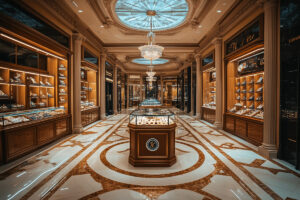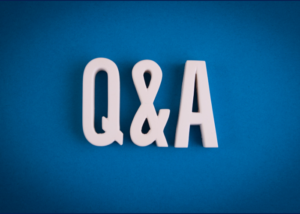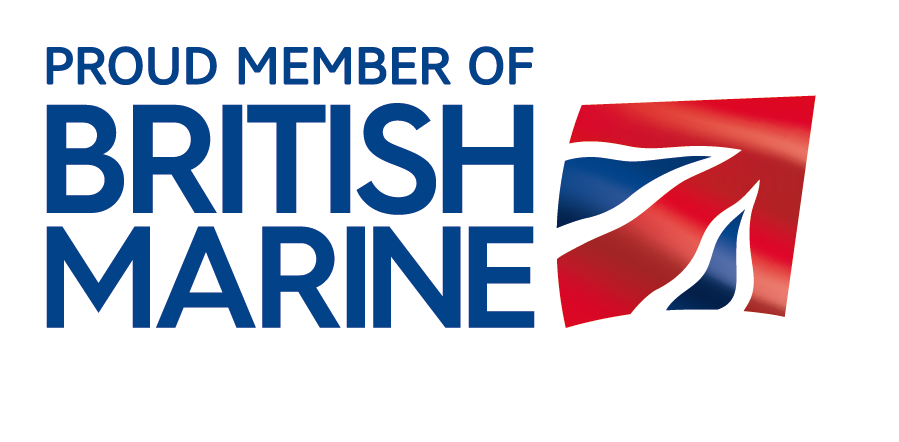Enterprise Resource Planning (ERP) systems are essential tools for managing the operations of modern luxury retail brands. An ERP system integrates various business processes such as inventory management, sales, customer relationships, and finance into a single, unified platform. For luxury retailers, who often deal with high-value products and demanding customers, having an ERP system helps ensure that every part of the business runs smoothly and efficiently.
Luxury retail faces unique challenges compared to other sectors. You need to maintain premium customer experiences while managing complex supply chains and valuable inventories. Customers expect personalised services, both online and in-store, which adds to the complexity of managing data across multiple channels. This is where an ERP system becomes critical. It provides real-time access to important business data, allowing you to streamline operations and make informed decisions.
Digital transformation has greatly impacted luxury retail. With more customers shopping online and expecting seamless experiences across all platforms, the role of ERP systems has grown significantly. An ERP system helps you meet these demands by integrating all customer touchpoints, ensuring consistency whether a customer is browsing in-store or making a purchase online.
Key Features of an ERP System for Luxury Retail Brands
An ERP system tailored for luxury retail must include specific features that address the unique needs of managing high-value products and delivering exceptional customer experiences. Let’s look at the essential features an ERP system should offer to help you run your luxury retail business efficiently.
Accurate Inventory Management
For luxury retailers, inventory management is crucial. You are often dealing with rare, expensive items that require careful tracking. An ERP system provides real-time visibility into your inventory across multiple locations, whether it’s in a store, a warehouse, or online. This helps you know exactly where each item is at all times.
Beyond basic tracking, ERP systems help you prevent loss or theft, a critical concern in luxury retail. The system can also predict future demand by analysing sales patterns, helping you avoid overstocking or understocking, which could lead to lost sales or wasted resources.
Supply Chain Management
Luxury retail often involves complex supply chains that include specialised materials, international suppliers, and longer lead times. An ERP system helps you manage these complexities by optimising the supply chain from end to end. It tracks shipments, ensures high-quality materials are sourced, and automates processes like order placement and vendor management.
One key advantage is that an ERP system helps maintain ethical sourcing and sustainable practices. This is especially important in luxury retail, where both customers and regulators expect brands to follow strict ethical standards. By managing your supply chain through an ERP system, you can ensure that your materials are sourced responsibly and delivered on time.
Customer Relationship Management (CRM)
In luxury retail, the relationship with your customers is just as valuable as the products you sell. An ERP system with CRM capabilities allows you to provide personalised experiences that customers expect from high-end brands. It tracks customer data, including purchase history and preferences, so you can tailor offers and communication to each individual client.
The system can also integrate loyalty programs, helping you build a loyal customer base by rewarding repeat purchases. Additionally, a CRM feature helps you maintain a consistent relationship with your customers, whether they shop in-store or online, ensuring a seamless experience across all channels.
Compliance and Regulatory Reporting
Luxury retail businesses often face strict regulations, including those related to sourcing, anti-money laundering laws, and sustainability. An ERP system helps you stay compliant by providing built-in tools for tracking and reporting on regulatory requirements.
For instance, it can monitor the origin of materials to ensure ethical sourcing, as well as provide detailed records of transactions to comply with anti-money laundering laws. This reduces the risk of non-compliance, which can lead to costly penalties and damage to your brand’s reputation. With an ERP system, you can ensure that your business meets these standards while maintaining a transparent and ethical operation.
Benefits of ERP Integration in Luxury Retail Brands
Integrating an ERP system into your luxury retail business offers several direct benefits that improve both day-to-day operations and the customer experience. Let’s explore how an ERP system can improve your business.
Improved Efficiency
One of the primary advantages of ERP integration is the boost in efficiency across various business functions. With an ERP system, you can streamline inventory management, ensuring that products are tracked in real-time and available when needed. This also reduces manual work by automating tasks like reordering stock and managing multiple store locations.
ERP systems also enhance sales and customer interactions by providing a unified platform that connects all your departments. Sales staff, whether in-store or online, have access to up-to-date information about product availability, customer preferences, and order history. This allows your team to work more efficiently, leading to faster service and smoother operations overall.
Better Decision-Making
ERP systems provide luxury retailers with valuable data analytics that help drive informed decisions. With real-time insights into customer behaviour, sales trends, and supply chain performance, you can make strategic choices that align with your business goals.
For example, you can identify which products are most popular among your high-end customers or spot seasonal demand patterns to ensure you have the right stock at the right time. The system’s ability to generate detailed reports on sales performance, inventory levels, and supplier efficiency gives you a clear picture of your business operations, helping you make data-driven decisions that improve outcomes.
Customer Experience
In luxury retail, providing a personalised and seamless customer experience is crucial. ERP systems enable you to deliver that experience by integrating all customer touchpoints into one platform. Whether your customers shop online or in-store, the ERP system ensures they receive consistent, high-quality service.
Through detailed customer data, such as purchase history and preferences, your team can offer personalised recommendations and services that enhance the shopping experience. This level of personalisation builds stronger relationships with your customers, increasing their loyalty to your brand. Additionally, ERP integration supports omnichannel retailing, allowing customers to switch between shopping channels without any disruption in service.
Cost Reduction and Profitability
Another major benefit of ERP integration is the ability to reduce costs while increasing profitability. ERP systems improve resource management by optimising your supply chain, ensuring that products are ordered, produced, and delivered more efficiently. This helps reduce wastage, minimise excess inventory, and avoid costly delays in production.
By automating key processes such as procurement, stock management, and order fulfilment, you can reduce manual errors and improve overall operational efficiency. These cost savings directly impact your profitability, as you are able to allocate resources more effectively, leading to better financial performance.
How to Choose the Right ERP for Your Luxury Retail Brand
Choosing the right ERP system for your luxury retail brand is a crucial decision that will impact how efficiently your business operates. To make the best choice, you need to consider factors such as customisation, scalability, integration capabilities, and costs. Here’s what to look for when selecting an ERP system tailored to your needs.
Customisation and Scalability
Your luxury retail brand has specific needs that a one-size-fits-all ERP system might not fully address. It’s essential to choose a system that allows for customisation. This means the ERP should be flexible enough to adapt to the unique features of your business, such as managing bespoke products, high-value inventory, and personalised customer experiences.
At the same time, you need to ensure that the ERP system is scalable. As your business grows, the ERP should be able to handle an increasing volume of transactions, customers, and products without compromising performance. A scalable system will support your business as it expands, making sure you don’t have to invest in a completely new system in the future.
Integration Capabilities
In today’s luxury retail environment, it’s important for your ERP system to seamlessly integrate with other key platforms you use, such as CRM (Customer Relationship Management), e-commerce platforms, and supply chain systems. Integration ensures that all business data is connected and easily accessible from one system, eliminating the need for separate software tools that may lead to inefficiencies or data silos.
For example, integrating your ERP with a CRM system allows you to manage customer relationships more effectively, ensuring consistent communication and a personalised experience across all channels. Similarly, integrating with eCommerce platforms ensures that your online and offline sales are synchronised, giving you complete visibility over inventory and customer orders.
Cost Considerations
When choosing an ERP system, cost is always a major consideration. However, it’s important to balance upfront costs with the long-term benefits the system will provide. While some ERP systems might have lower initial costs, they may lack the features or scalability needed for a growing luxury retail brand.
Consider the total cost of ownership, which includes not just the purchase price but also ongoing costs for maintenance, upgrades, and support. You’ll want to invest in a system that offers the right features and support to help your business succeed over time, even if it means a higher initial investment. In the long run, a well-chosen ERP system can save you money by improving efficiency, reducing errors, and supporting your business as it grows.
Final word
At Sci-Net, we understand the unique challenges luxury retailers face. Our tailored ERP systems, designed specifically for the luxury market, can help you improve efficiency, enhance customer experiences, and drive profitability. Whether you’re looking to streamline your supply chain or offer personalised shopping experiences, our solutions are built to grow with your business.
Get in touch with us today to learn more about how we can help you integrate the right ERP system for your brand. Let’s work together to bring your business to the next level.











